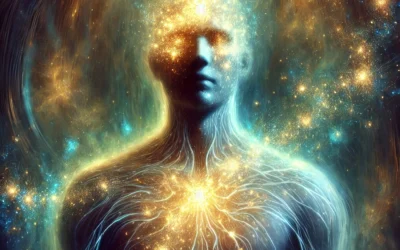Imagine a world where time, as we perceive it, doesn’t actually exist. This isn’t the plot of a sci-fi movie but a groundbreaking theory proposed by some physicists. According to this theory, time might be an illusion created by the strange phenomena of quantum entanglement. If this hypothesis holds true, it could fundamentally alter our understanding of the universe.
Quantum Entanglement: The Basics
Quantum entanglement, a term Albert Einstein famously referred to as “spooky action at a distance,” describes a situation where two particles become so intertwined that the state of one instantaneously influences the state of the other, regardless of the distance separating them. This defies the classical notion that nothing can travel faster than the speed of light.
Time as an Emergent Property
One leading proponent of the idea that time is an illusion created by quantum entanglement is physicist Carlo Rovelli. Rovelli posits that our perception of time’s flow is a byproduct of the entangled states of particles. In essence, the sequence of events we experience as time might emerge from the underlying quantum interactions between these particles.
In Rovelli’s framework, detailed in his book The Order of Time, time is not a fundamental aspect of reality but a macroscopic phenomenon that arises from the quantum level. Our conventional understanding of past, present, and future is a construct that emerges from these quantum interactions? .
Experimental Evidence
Experiments have provided insights into how time might emerge from quantum entanglement. Researchers have demonstrated mechanisms where time-dependent probabilities in quantum systems are influenced by entangled states, suggesting that our macroscopic experience of time might indeed be a reflection of deeper quantum processes? ?.
For example, an experiment detailed in a study on the arXiv preprint server shows how measurements on entangled particles can lead to time-like behaviors without assuming an underlying classical timeline. This supports the idea that time could be an emergent property rather than a fundamental one? .
Bridging Quantum Mechanics and Relativity
One of the most significant challenges in modern physics is reconciling quantum mechanics with Einstein’s theory of relativity. While relativity treats time as a continuous dimension, quantum mechanics describes a world where time might not exist at the smallest scales. The notion that time emerges from quantum entanglement offers a potential bridge between these two frameworks, suggesting that what we perceive as the flow of time is a macroscopic manifestation of microscopic quantum interactions.
A Paradigm Shift in Understanding Reality
If time is indeed an illusion created by quantum entanglement, this would represent a profound shift in our understanding of the universe. It challenges the long-held belief that time is a fundamental backdrop against which events unfold. Instead, it suggests that time is a construct emerging from the complex web of entangled particles.
This perspective opens new avenues for exploring the mysteries of the cosmos and invites us to rethink our assumptions about the nature of reality. As we delve deeper into the quantum realm, we may uncover insights that not only explain the fabric of reality but also reshape our understanding of time itself?.
In embracing this radical theory, we stand on the cusp of a transformative era in physics. Time, long considered a fundamental aspect of reality, may reveal itself as a beautifully intricate illusion woven from the threads of quantum entanglement. This ongoing exploration highlights the boundless potential of human curiosity and the ever-evolving quest for knowledge.



